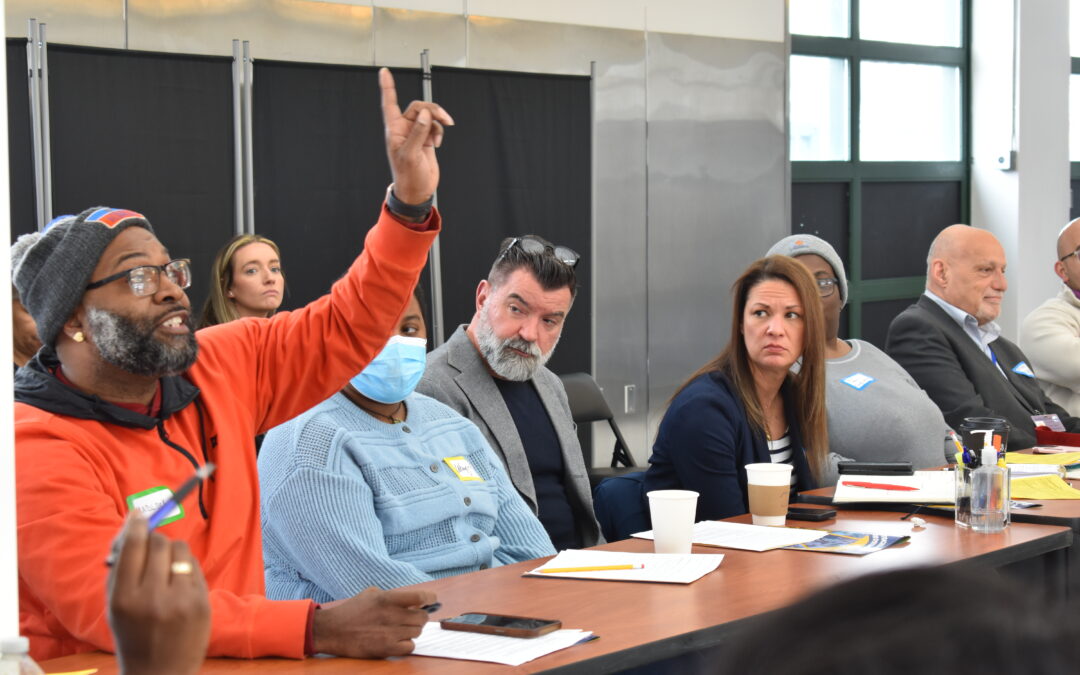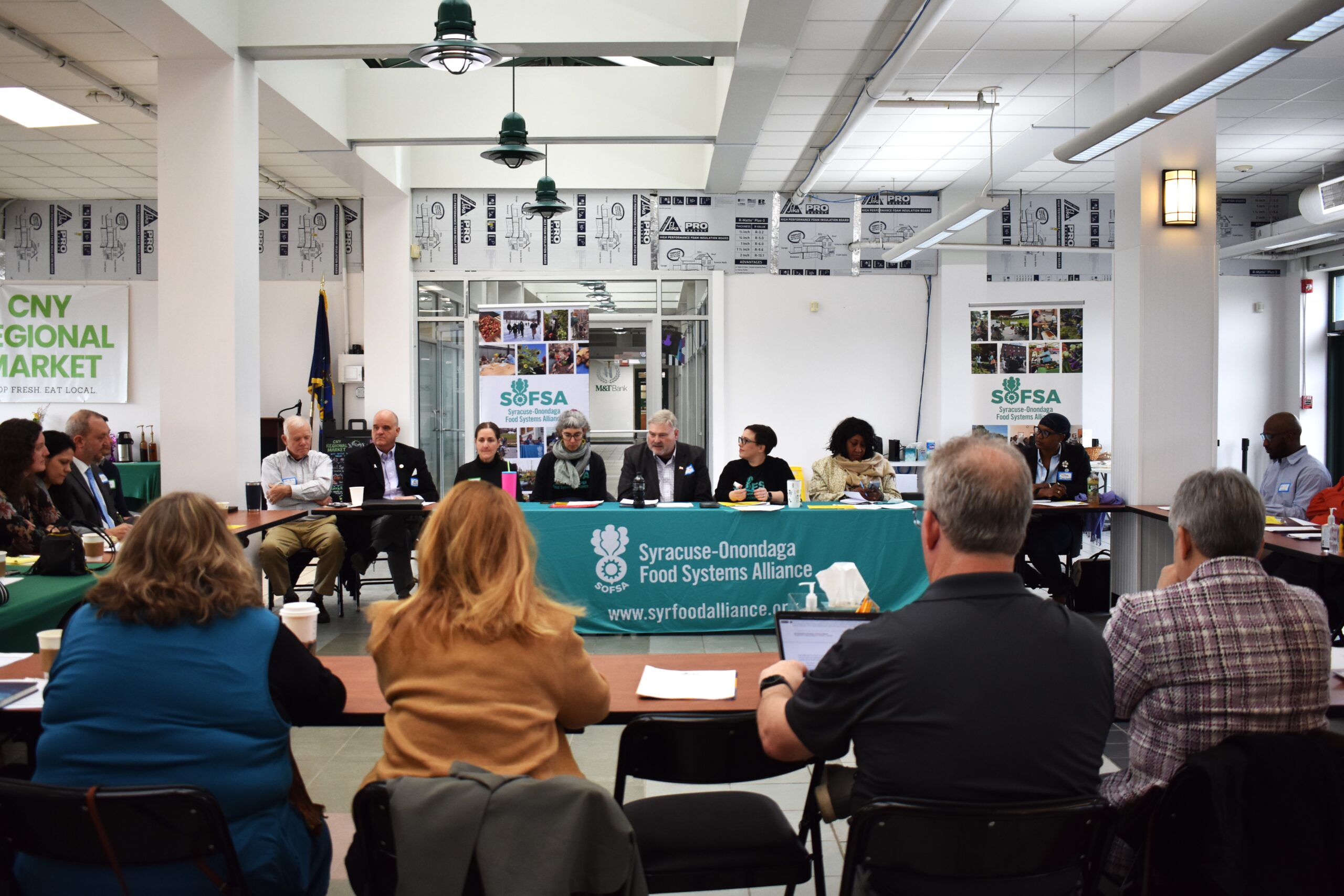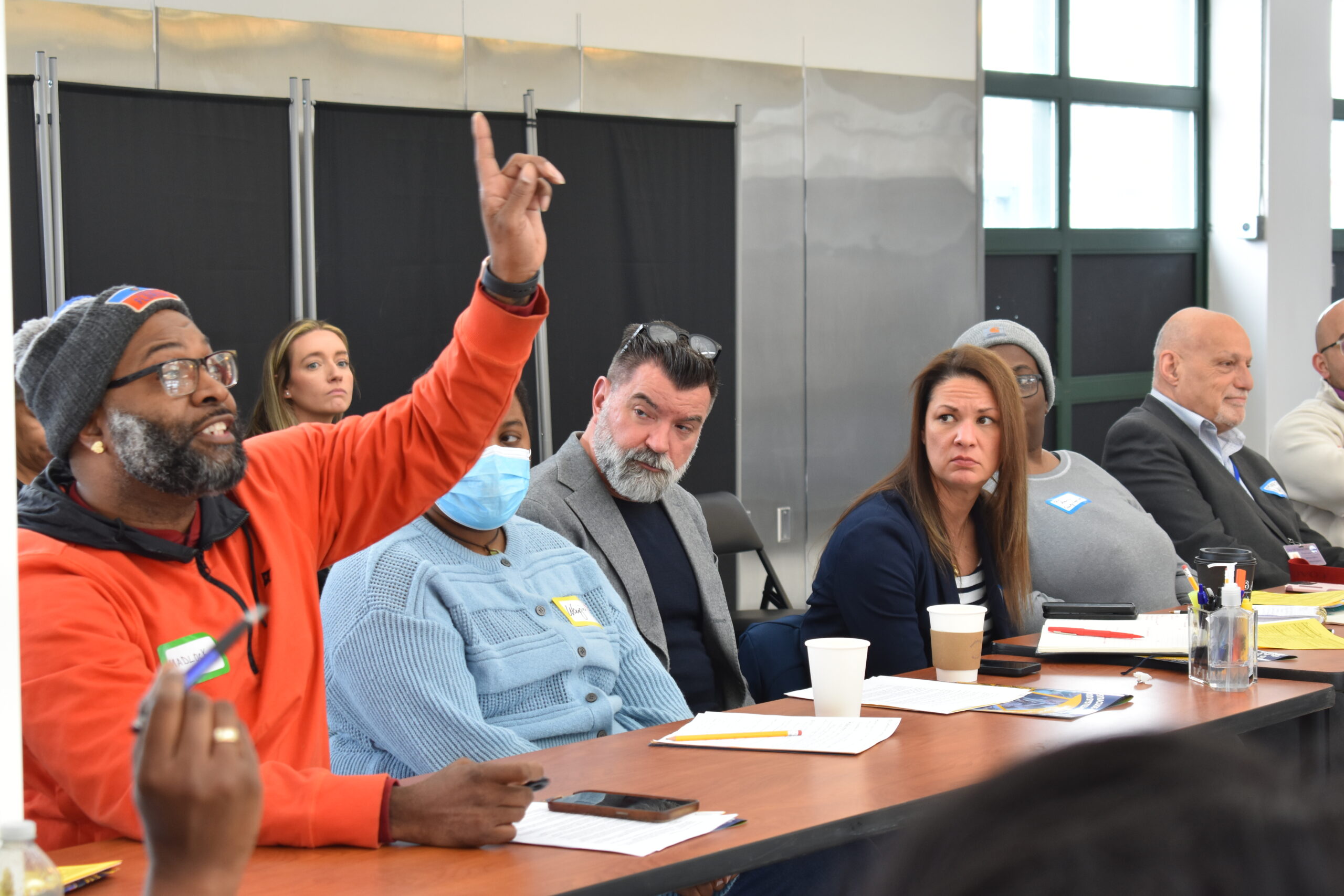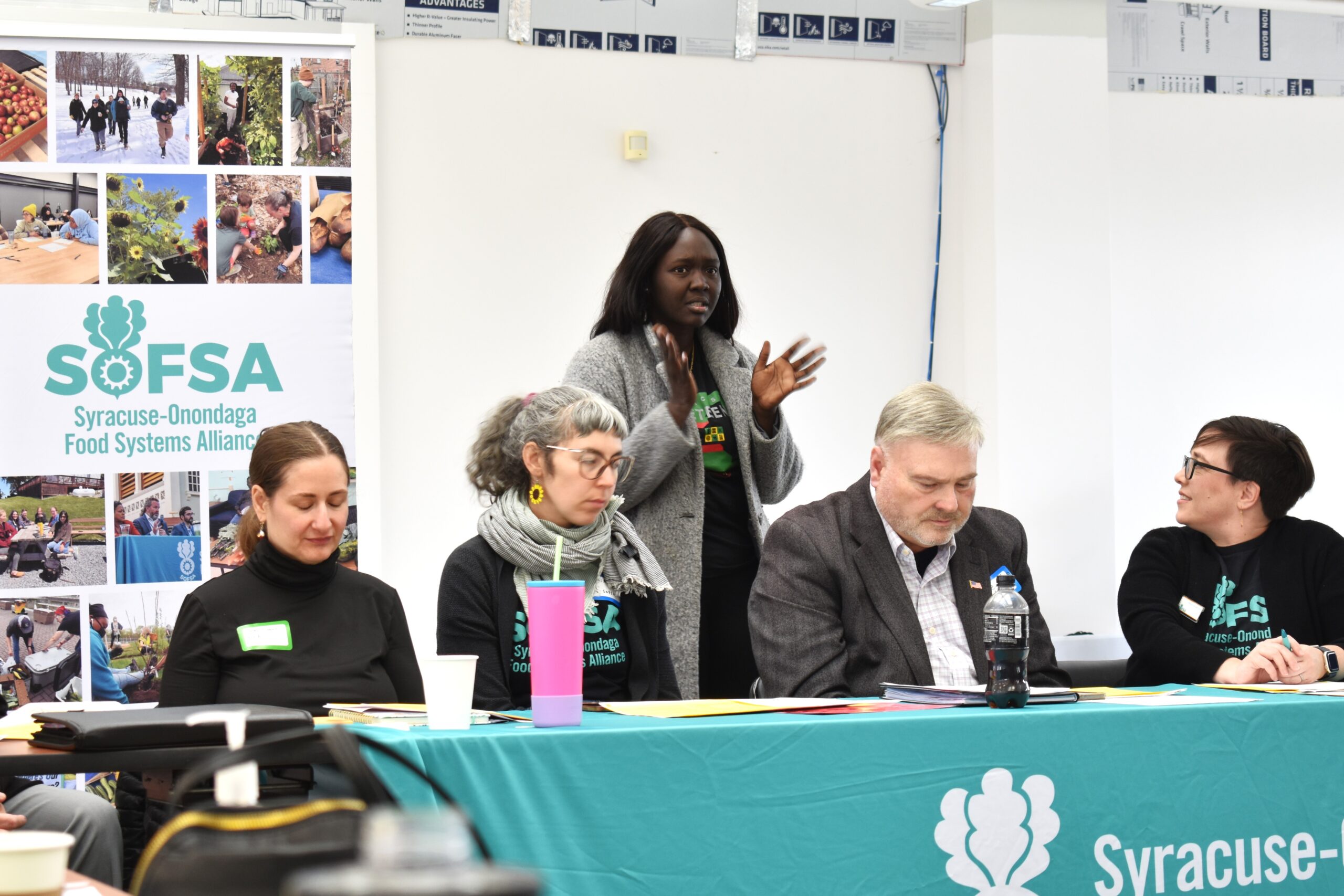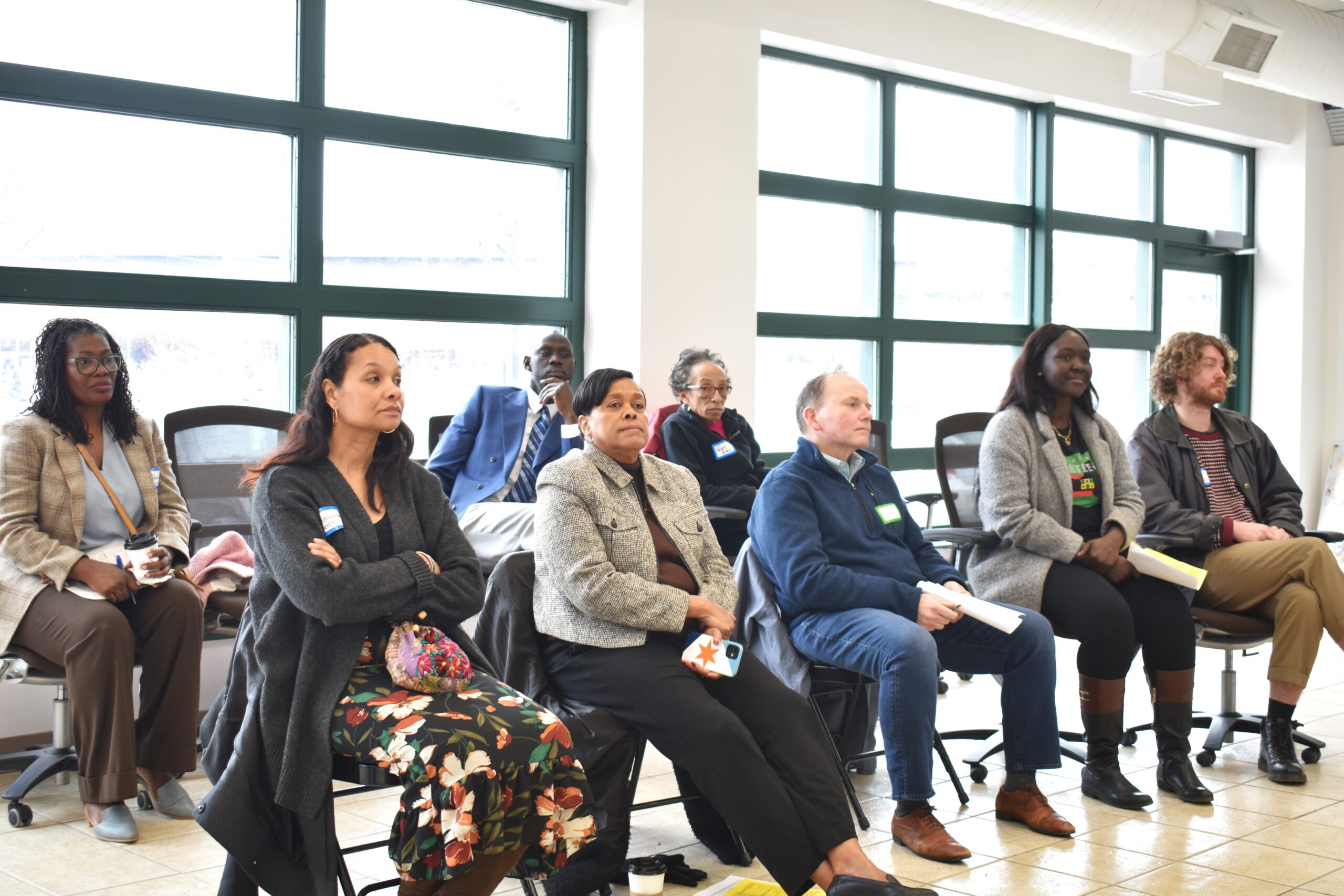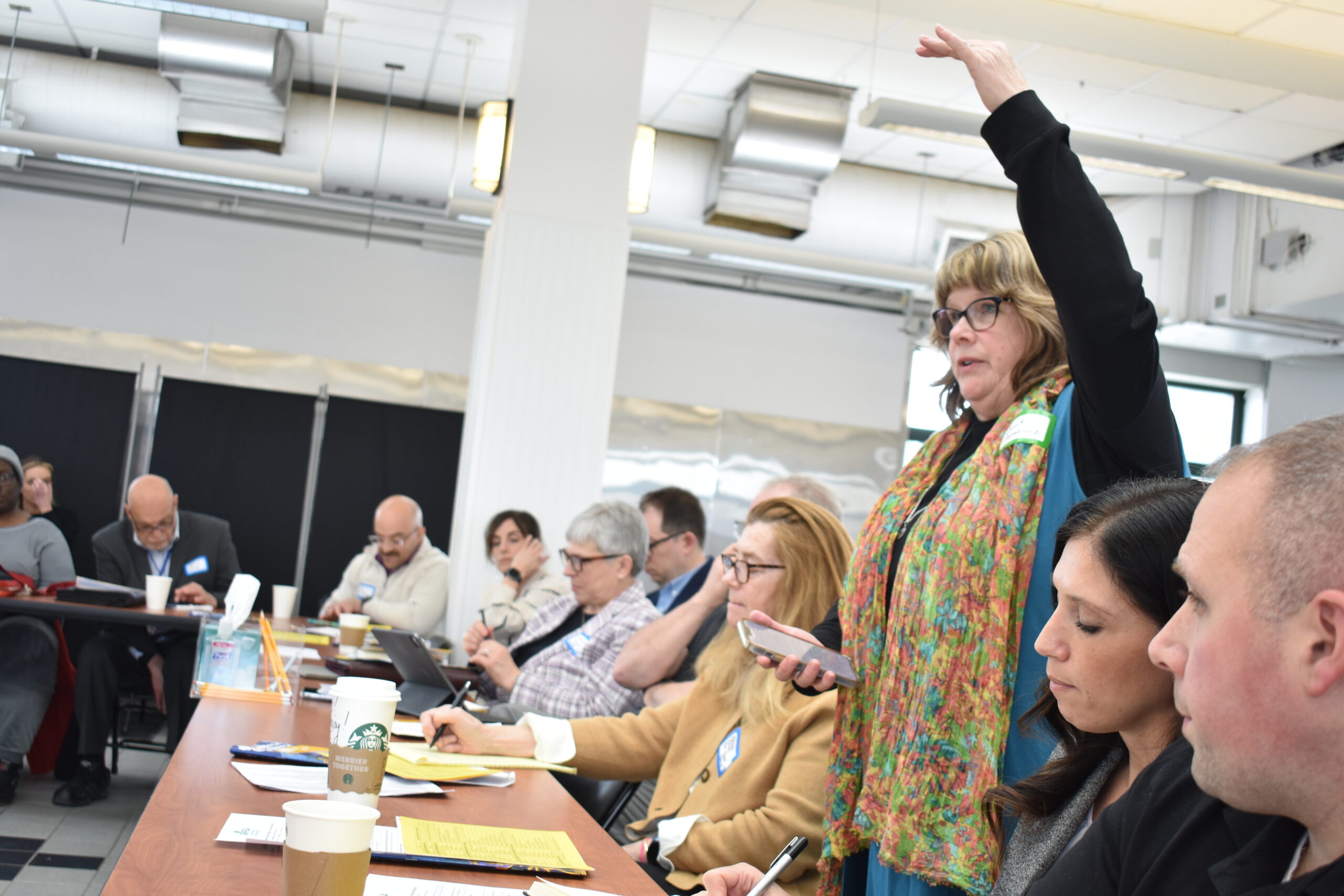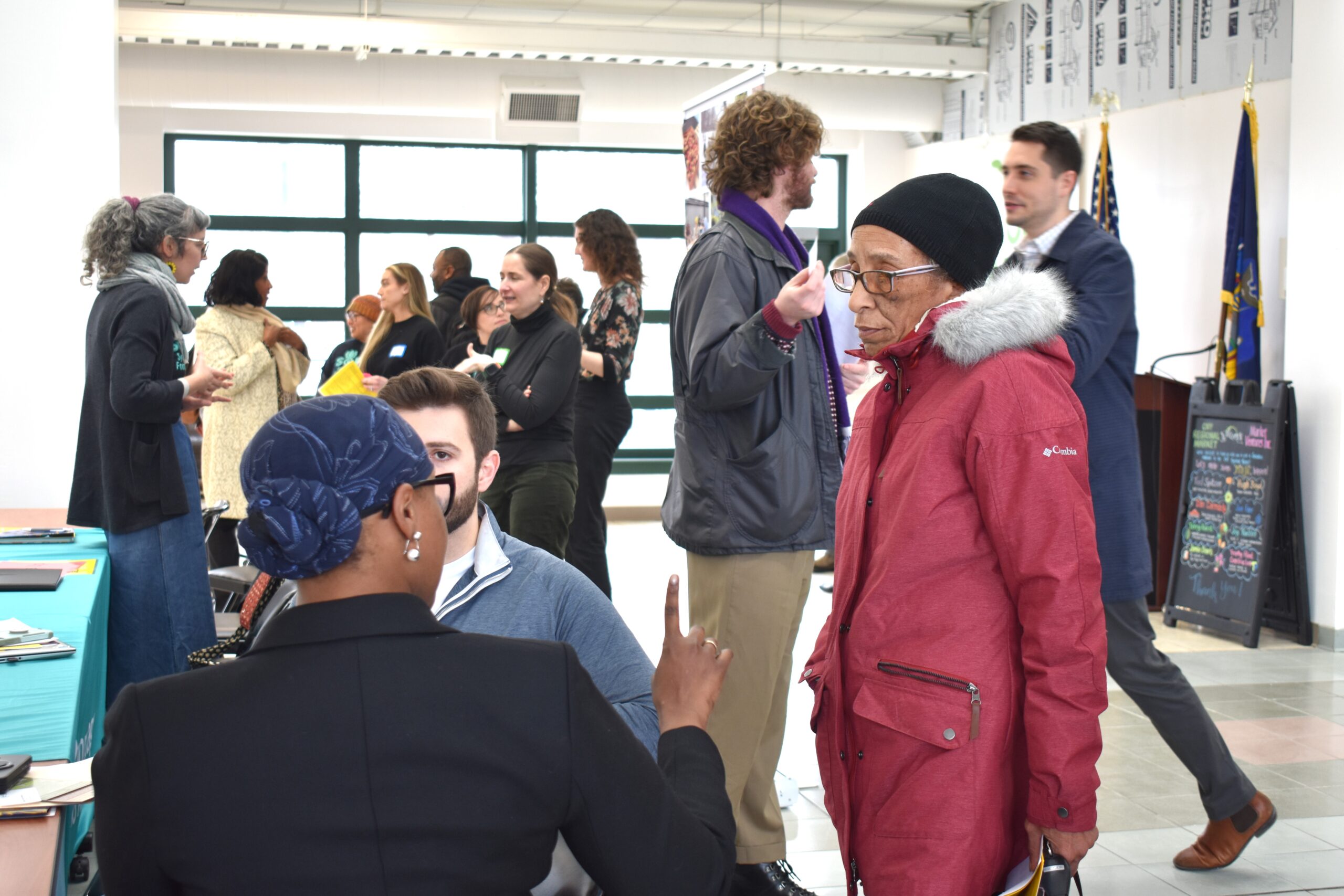Syracuse, NY – On Wednesday, April 2, 2025, the Syracuse-Onondaga Food Systems Alliance (SOFSA) hosted a community listening session that brought together local elected officials, food system stakeholders, and community members to discuss the most pressing challenges and opportunities facing Central New York’s food system.
Hosted at the CNY Regional Market, the event provided a rare opportunity for direct dialogue between policymakers and those working on the ground, following a United Nations-style format where each of the 17 presenters representing different stakeholder groups within the food system – farmers, food business owners, market operators, nonprofit leaders, and advocates – had two minutes to share insights from their unique perspectives. After each segment of presentations, elected officials had the chance to ask clarifying questions, fostering deeper understanding and engagement.
Among the notable attendees were: County Legislators Dave Knapp, Dan Romeo, Palmer Harvey, Mark Olson, Ken Bush, Maurice Brown, and Nodesia Hernandez; Syracuse Deputy Mayor Sharon Owens; Syracuse Common Councilors Chol Majok, Mary Nave, and Patrona Jones-Rowser; SCSD School Board Member Twiggy Billue; Assistant Commissioner for the NYS Department of Agriculture & Markets Damali Wynter; and Onondaga County Commissioner of Social Services & Economic Security Sarah Merrick. These officials – alongside staffers from the offices of Senator Schumer, Governor Hochul, State Senator Chris Ryan, and Assemblymembers Pamela Hunter and Al Stirpe – listened as presenters from across the food system shared firsthand experiences and concerns.
“Listening to deepen our collective understanding and co-create actionable solutions is essential to ensuring that policies truly serve our communities,” said Maura Ackerman, SOFSA’s Executive Director. “At SOFSA, we are committed to cultivating collaboration across sectors. Discussions like this are the backbone of that work. They help us identify common challenges, take a systemic approach, and align resources toward real, high-impact solutions.”
SOFSA’s listening session underscored the power of community-driven advocacy and the importance of ongoing dialogue between policymakers and those shaping the region’s food landscape. Key priorities that emerged include improving food access, strengthening local food systems, and investing in farm-to-school programs. Participants also stressed the need for culturally inclusive food options and better infrastructure to support local agriculture – including for next generation and urban farmers. Moving forward, next steps include fostering collaboration across sectors, advocating for fair food procurement policies, and securing funding for community-led solutions.

